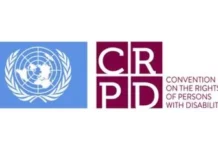A new article by disability researcher Joanne Hunt argues that for counselors and psychotherapists to avoid reinforcing the systemic oppression of disabled service users, it is essential to include structural competence in clinical training modules.
“With the inevitability of a tsunami of disability owing to long COVID and the impending new wave of austerity in the UK and beyond, such initiatives—and, importantly, the political ideology that feeds them—are likely to persist. This indicates a need for psy practitioners, including counselors and psychotherapists, to pay critical attention to the sociopolitical context of their professions and related practices,” Hunt writes.
Hunt notes that without an adequate understanding of the true definition of disability, clinical “practitioners are unlikely to provide adequate support to disabled people and may even cause harm.”
The author describes disability as “arising from the interplay of minds and bodies with society, culture and power structures” and the “interaction between people with ‘impairments’ (bodies and minds deemed to diverge from the ‘norm’) and an exclusionary society.”
This perspective emphasizes the inherently social and relational elements of disability—it is not that disabled people possess an inherent “flaw” of some sort; rather, disabilities result from exclusionary social perspectives and practices.
As Hunt explains, it then follows that for counselors and psychotherapists to aid disabled people in overcoming related life difficulties, clinicians need to receive education and training that would allow them to understand the sociopolitical context that they and the service users they treat exist within:
“Oppressive sociopolitical realities (including ableism) and their impact on practitioners, clients, and the therapeutic process require foregrounding in practice guidelines, training curricula, continued professional development and educational literature.”

Hunt recommends training in the field of critical psychology, which routinely emphasizes the sociopolitical and economic contexts of psychological practice, as one fruitful avenue. Additionally, Hunt argues that any implementation of new training practices should include working alongside disabled people “in a spirit of co-production and empowerment.”
This path would run counter to the prevailing ideology of the field and much of Western society more broadly, defined by the neoliberal economic policy as well as how neoliberalism encourages the creation of certain kinds of people.
The psy-disciplines are slowly coming to recognize the harms of neoliberal capitalist ideology and practices, specifically how these intersect with mental health treatment.
Neoliberalism emphasizes “functionality and productivity” over more holistic notions of human well-being. Additionally, it tends to lay the blame for human suffering on individualistic conceptions of faulty thinking, neurochemical and genetic problems, unhelpful behaviors, and more, as opposed to oppressive systemic forces.
Neoliberal economic policies stress forces such as austerity, private market forces, and “deregulation, privatization and reduction in state spending, notably within welfare and health sectors.”
Hunt defines the ideal neoliberal person as “involving separation of self from context, continuous self-improvement, affect management and striving for optimum productivity.”
This, of course, puts the onus on the disabled individual to change and keep up with capitalistic demands rather than pushing for the broader systemic changes necessary to truly accommodate disabled people.
Perhaps the most significant difficulty in enacting Hunt’s suggestions is just how captured psychology is by these neoliberal capitalist forces. As the author notes, cognitive-behavioral therapy and positive psychology—two highly fashionable approaches within psychology—are very much aligned with neoliberal values. Hunt explains that these approaches are “more amenable to short-term work and manualization, quantification and, thus, evidence-based status, making such approaches highly marketable.”
****
Hunt J. (2023). On the need for structurally competent counseling and psychotherapy: Neoliberal ideology, disability, and the psy disciplines. Counseling and Psychotherapy Research. https://doi.org/10.1002/capr.12649 (Link)














Removed for moderation.
Report comment
This article is a better response to this piece, than my comment, which appears to be too hot to handle. https://www.thefp.com/p/how-therapists-became-social-justice-warriors?utm_source=post-email-title&publication_id=260347&post_id=121935886&isFreemail=true&utm_medium=email
Report comment
Thank you…. because I needed that link!
Report comment